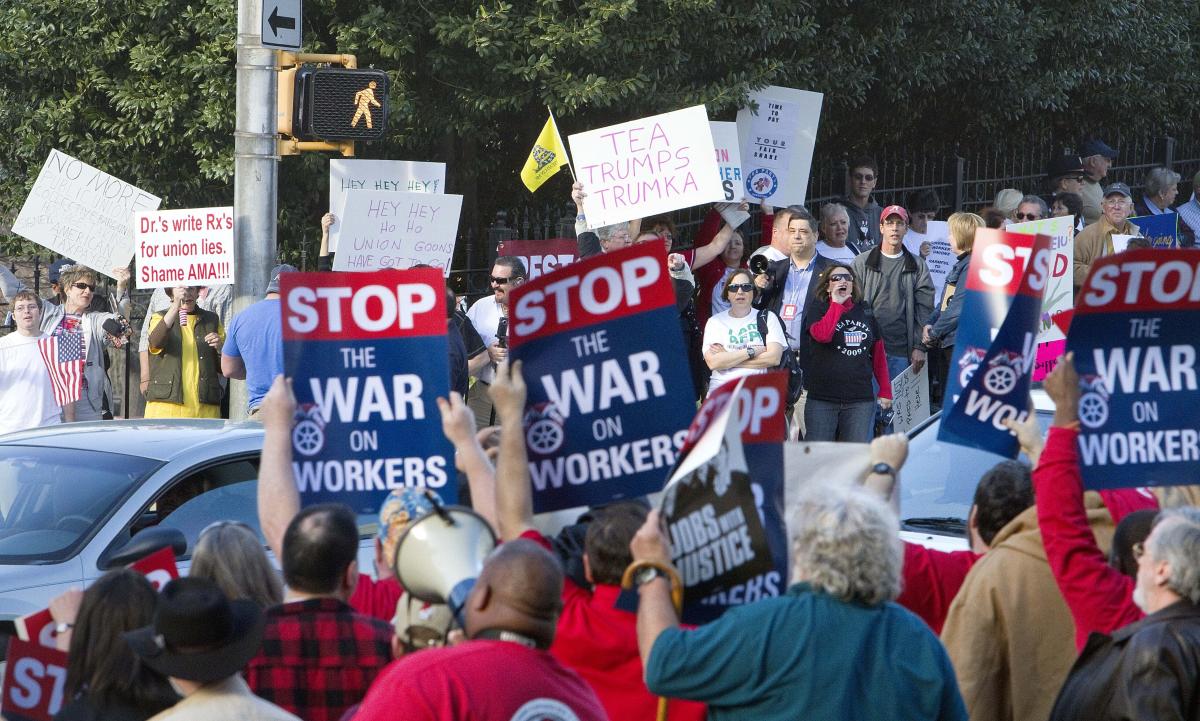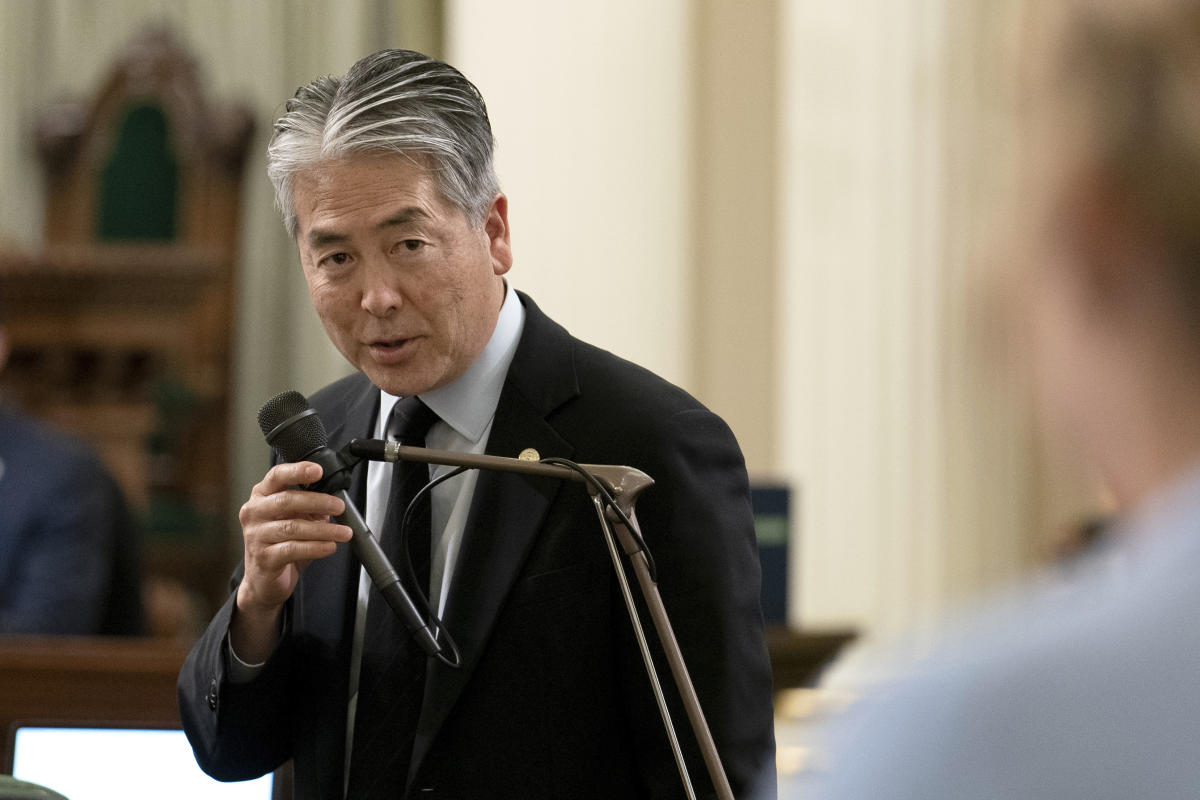MADISON, Wis. (AP) – A law that sparked massive protests and made Wisconsin the center of a national fight over union rights is back in court Tuesday and faces a new challenge from teachers and government workers after the state Supreme Court moved to liberal control .
The 2011 law, known as Act 10, imposed a near-total ban on collective bargaining for most government employees. It has withstood numerous legal challenges and was the signature legislative achievement of the former Republican administration. Scott Walkerwho used it to organize a presidential run.
The law catapulted Walker onto the national stage, led to a failed recall campaign and laid the groundwork for his failed presidential bid in 2016. It also led to a dramatic decline in union membership across the state.
If the latest lawsuit is successful, all public sector workers who have lost their collective bargaining power would have it restored. They would be treated the same as police, fire and other public safety associations, which remain exempt.
The law is “fundamentally unequal,” irrational and unconstitutional, the unions argue in lawsuits.
The Republican-controlled Legislature is asking for the case to be dismissed, arguing that “it has long been established that Act 10 passes constitutional muster.” Dane County Circuit Judge Jakob Frost scheduled oral arguments on the motion to dismiss on Tuesday.
The Legislature also argues that unions waited too long to file the challenge, noting that the law has been in effect for nearly 13 years and has survived challenges in state and federal courts.
The lawsuit says exemptions for firefighters and other public safety workers are unconstitutional, similar to arguments made in an earlier case brought by Milwaukee teachers and government workers that was dismissed by the state Supreme Court in 2014.
The only change since the Wisconsin Supreme Court’s 2014 ruling is the composition of the court, attorneys for the Legislature say in court filings.
“And that is certainly no reason for any court in Wisconsin to depart from that precedent,” the legislature said.
The court is controlled 4-3 by liberals, a turnaround from upholding the law under 5-2 conservative control a decade ago.
The Justice Department, overseen by Democratic Attorney General Josh Kaul, is representing government agencies named as defendants and also supports dismissal of the case.
Act 10 effectively ended collective bargaining for most public unions, allowing them to negotiate only base wage increases that did not exceed inflation. It also disallowed the automatic cancellation of union dues, required annual recertification votes for unions and forced public employees to pay more for health insurance and retirement benefits.
Teachers and other public employees argue in their lawsuit that Act 10 violates the Wisconsin Constitution’s equal protection guarantee and exempts groups that also supported Walker in the 2010 gubernatorial election, while those subject to the restrictions did not.
But the Legislature and state agency defendants all say there were rational, legal reasons to differentiate the employee groups.
A federal appeals court also rejected claims in 2013 that the law violated the U.S. Constitution’s equal protection guarantee, saying the state was free to draw a line between public safety and other unions, and ruled again the following year that the law was constitutional.
And in 2019, a federal judge dismissed a lawsuit filed by two branches of the International Union of Operating Engineers, which argued the law violates free speech and free association under the First Amendment.
In their plea for dismissal, the suspects rely on previous rulings. The unions argue that their case raises different legal issues than previous lawsuits that failed.







